|
Here are all the paintings of Francisco de Goya 05
| ID |
Painting |
Oil Pantings, Sorted from A to Z |
Painting Description |
| 82171 |
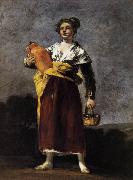 |
Water Carrier |
Medium Oil on canvas
Dimensions 68 x 52 cm (26.8 x 20.5 in)
cjr |
| 85939 |
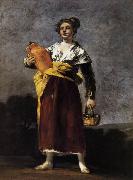 |
Water Carrier |
Oil on canvas
Dimensions 68 x 52 cm (26.8 x 20.5 in)
cyf |
| 96636 |
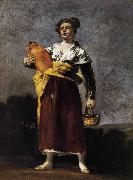 |
Water Carrier |
oil on canvas
Dimensions 68 X 52 cm
cyf |
| 62460 |
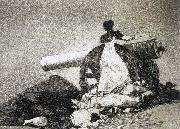 |
What courage |
1810-15 Etching and aquatint, 155 x 208 mm - This is Plate 7 from the series The Disasters of War (Los desastres de la guerra). Goya reacted to the struggle against the French with The Disasters of War, his second great cycle of etchings after Los Caprichos. It extends to over 80 plates, but includes only few acts of heroism, such as that of the young woman who fires the cannon after all the men are dead. Author: GOYA Y LUCIENTES, Francisco de Title: What courage! Form: graphics , 1801-1850 , Spanish , other |
| 62463 |
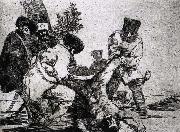 |
What more can one do |
1812-15 Etching and aquatint, 158 x 208 mm - This is Plate 33 from the series The Disasters of War (Los desastres de la guerra). French soldiers castrate or kill a defenceless man. This is another scene that the artist, living in Madrid, probably did not see at first hand. Brutality and death fired his imagination. Author: GOYA Y LUCIENTES, Francisco de Title: What more can one do? Form: graphics , 1801-1850 , Spanish , other |
| 77573 |
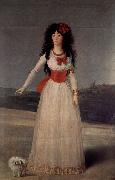 |
White Duchess |
1795(1795)
Medium Oil on canvas
Dimensions 194 ?? 130 cm (76.4 ?? 51.2 in)
cyf |
| 78439 |
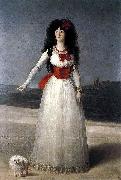 |
White Duchess |
1795(1795)
Medium Oil on canvas
Dimensions 194 x 130 cm (76.4 x 51.2 in)
cyf |
| 62483 |
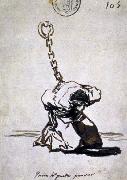 |
Who Can Think of It |
1814-23 Sepia wash and Indian ink, 205 x 142 mm Museo del Prado, Madrid This graphics belongs to Album C. Author: GOYA Y LUCIENTES, Francisco de Title: Who Can Think of It? Form: graphics , 1801-1850 , Spanish , other |
| 79133 |
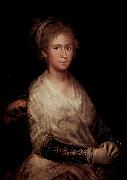 |
wife of painter Goya |
1795-1796
Medium Oil on canvas
Dimensions 81 x 56 cm (31.9 x 22 in)
cyf |
| 62466 |
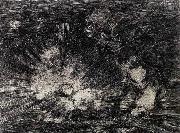 |
Will She Rise Again |
1810-1814 Etching, 175 x 220 mm - This is Plate 80 from the series The Disasters of War (Los desastres de la guerra). In the concluding plates of the Disasters of War are shown the burial of a beautiful young woman, followed by her exhumation or resurrection . Captioned Murio la verdad (Truth has Died), the first shows her body radiant with light as she lies in her grave and a looming priest administers the last rites. In the companion print, Si reucitaria? (Will She Rise Again?), she is exposed, her radiance and beauty faded, her face aged. Still she emits a glow that seems all the greater for the depth of background shadow - and sufficient to throw the crowd of peering ghouls into a frenzy. Here, the parallel hatching of the first etched plate is replaced by radiant lines, inked more intensely as they spread away from the body |
| 44139 |
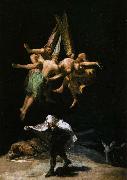 |
Witches in the Air |
1797-98
Oil on canvas,
43,5 x 31,5 cm |
| 44103 |
 |
Witches Sabbath |
1820-23
140 x 438 cm |
| 91648 |
 |
Witches Sabbath |
between 1820(1820) and 1823(1823)
Medium Oil on plaster mounted on canvas
cyf |
| 28590 |
 |
Witches'Sabbath of The Great Goat |
mk61
c.1820-1822
Oil on canvas
140x438cm
|
| 44128 |
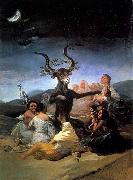 |
Witches- Sabbath |
1789
Oil on canvas,
43 x 30 cm |
| 91488 |
 |
woman and two children by a fountain |
1786(1786)
Medium oil on canvas
Dimensions 35.5 x 18.8 cm (14 x 7.4 in)
cyf |
| 62481 |
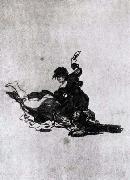 |
Woman Hitting Another Woman with a Shoe |
1812-23 Sepia wash, 205 x 141 mm Museum Boijmans van Beuningen, Rotterdam This graphics is from Album F. Author: GOYA Y LUCIENTES, Francisco de Title: Woman Hitting Another Woman with a Shoe Form: graphics , 1801-1850 , Spanish , other |
| 62480 |
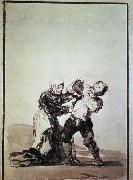 |
You'll see later |
1803-12 Indian ink and pen on pink paper, 266 x 187 mm Metropolitan Museum of Art, New York This sketch shows a burly lower-class man drinking greedily from a leather bottle. Ha has clearly been arguing with his wife, and Goya shows a moment of discord and dramatic action. With just a few precise brushstrokes and without any prior drawing, Goya conveys an emotionally charged expression. Author: GOYA Y LUCIENTES, Francisco de Title: You'll see later (Despu?s lo veras) Form: graphics , 1801-1850 , Spanish , study |
|
|
|
Prev 1 2 3 4 5
|
|
| Francisco de Goya
|
| Spanish
1746-1828
Francisco de Goya Locations
was an Aragonese Spanish painter and printmaker. Goya was a court painter to the Spanish Crown and a chronicler of history. He has been regarded both as the last of the Old Masters and as the first of the moderns. The subversive and subjective element in his art, as well as his bold handling of paint, provided a model for the work of later generations of artists, notably Manet and Picasso.
Goya married Bayeu's sister Josefa in July 25, 1773. His marriage to Josefa (he nicknamed her "Pepa"), and Francisco Bayeu's membership of the Royal Academy of Fine Art (from the year 1765) helped him to procure work with the Royal Tapestry Workshop. There, over the course of five years, he designed some 42 patterns, many of which were used to decorate (and insulate) the bare stone walls of El Escorial and the Palacio Real de El Pardo, the newly built residences of the Spanish monarchs. This brought his artistic talents to the attention of the Spanish monarchs who later would give him access to the royal court. He also painted a canvas for the altar of the Church of San Francisco El Grande, which led to his appointment as a member of the Royal Academy of Fine Art.
In 1783, the Count of Floridablanca, a favorite of King Carlos III, commissioned him to paint his portrait. He also became friends with Crown Prince Don Luis, and lived in his house. His circle of patrons grew to include the Duke and Duchess of Osuna, whom he painted, the King and other notable people of the kingdom.
After the death of Charles III in 1788 and revolution in France in 1789, during the reign of Charles IV, Goya reached his peak of popularity with royalty.
|
|

